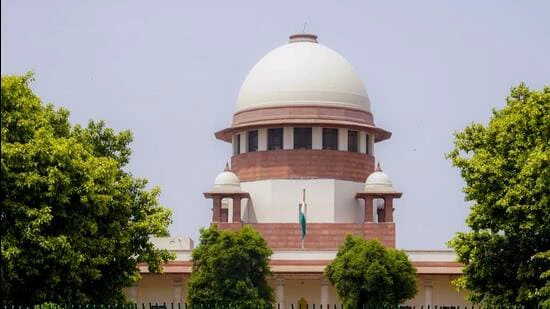The Supreme Court on Monday agreed to hold an open court hearing on the curative petition filed by Nithari killings convict Surendra Koli challenging the sole order of conviction passed against him by the top court in 2011 after his recent acquittal in 12 of 13 cases of rape and murder in the shocking crime that surfaced between 2005 and 2007.
Koli had filed his curative plea on August 30, a month after the apex court on July 30 acquitted him in 12 cases related to the Nithari killings in Noida. The court had concluded that the prosecution failed to prove the guilt of the accused as it noted several procedural flaws in the investigation.
Advocate Payoshi Roy, representing Koli, appeared before a bench headed by Chief Justice of India (CJI) Bhushan R Gavai seeking an urgent hearing on the curative petition. Roy said, “In 12 cases he has been acquitted. However, he is still in jail due to the one case where he is convicted. His review petition had earlier been dismissed. A curative petition has now been filed.”
The CJI, sitting with justice Vinod K Chandran, said, “Both judges who passed the order in 2011 have retired by now. We will assign a bench.” Incidentally, the July 30 order acquitting Koli in the other 12 cases was passed by a bench headed by the present CJI and also included justice Chandran.
A curative petition is the last judicial remedy available to seek reversal of a Supreme Court judgment. Such petitions are normally heard in chambers, and the scope is extremely limited – they are admitted only if a litigant can show that they were not given a fair hearing, that there was bias in the judgment, or that the court’s process was abused in a way that caused grave injustice.
Roy requested the court for an open court hearing to which the CJI remarked, “We have already said that in the order.” The review petition filed by Koli was dismissed by the top court after an open court hearing on October 28, 2014.
Koli was sentenced to death by the top court while upholding his conviction in February 2011. However, with passage of time and the delay in deciding his mercy plea, the Allahabad high court had, in 2015, commuted his death sentence to life term.
The Nithari killings, which came to light in 2007, shocked the nation with their brutality. Skeletal remains of several children were discovered in a drain behind the Noida house where Koli worked as a domestic aide. The house belonged to businessman Moninder Singh Pandher, who was also named in multiple chargesheets.
Looking into the sensational nature of the case, the investigation of the case was taken over by the Central Bureau of Investigation (CBI). The agency concluded that Koli lured girls to the house who were sexually assaulted and killed. He was even accused of cannibalism. The prosecution discovered the weapon allegedly used to chop the bodies of his victims.
Out of 16 cases of rape and murder registered between 2005 and 2007, the trial court convicted Koli in 13. Pandher was initially convicted in two cases, but was later acquitted in all. Koli, however, was left with one surviving conviction following the apex court’s 2011 judgment.
It was the CBI case that Pandher would call sex workers home. Watching his employer with sex workers triggered passions in the mind of Koli who enticed young victims to the house and later raped and killed them. He allegedly chopped up the bodies, disposed of bones and skulls in the drain, and was even accused of cannibalism.
While acquitting Koli in the 12 cases, the top court had observed that the recovery made during the investigation was not supported by a statement under Section 27 of the Evidence Act, which relates to recovery made pursuant to a statement recorded by an accused in police custody. CBI had approached the court against the October 2023 order of the Allahabad high court which acquitted Koli raising the possibility of an alleged organ trade that the agency failed to investigate.
